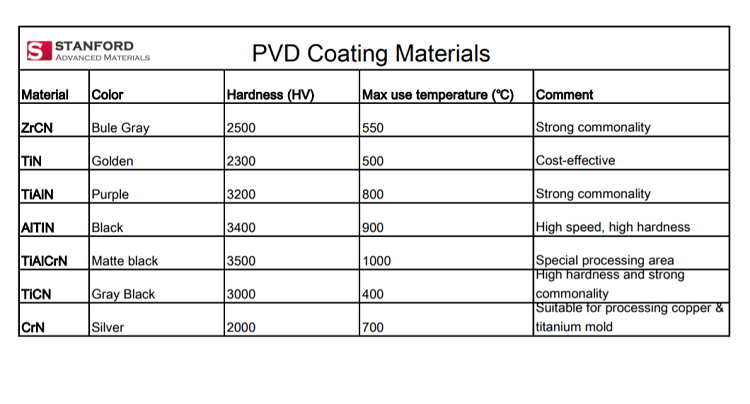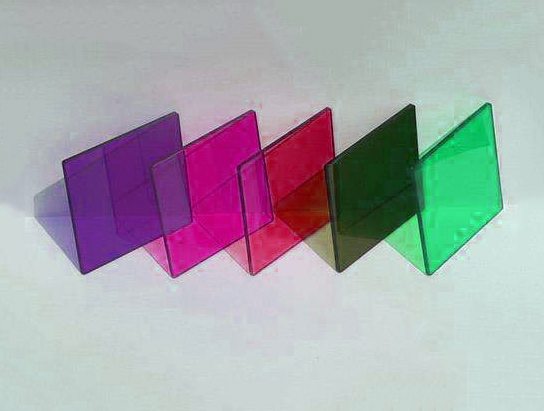Physical Vapor Deposition (PVD) is a thin film preparation technique that physically vaporizes the surface of a material source (solid or liquid) into gaseous atoms, molecules, or partially ionized into ions under vacuum conditions. [1]
Achieving a cost-effective application of the coating depends on a number of factors, and for each particular processing application, there is typically only one or several possible coating options. The choice of coating and its characteristics correctly determines the difference between a significant increase in processability and little improvement. Therefore, it is necessary to select a suitable coating according to detailed parameters such as the processing speed, the cooling method, the material to be processed, and the processing method. The following is our recommended coating selection:
TiN
TiN is a versatile coating that increases tool hardness and has a higher oxidation temperature.
Uses: high-speed steel cutting tools, slow processing tools (such as low-speed turning tools), wear parts, injection molds.
TiCN
The TiCN coating is based on the addition of carbon to the TiN to increase the hardness and low coefficient of friction of the coating.
Uses: high-speed steel tools, stamping dies, forming dies
TiAlN, AlTiN
The alumina coating formed by the TiAlN/AlTiN coating during processing can effectively improve the high-temperature processing life of the processing tool. The high-temperature oxidation resistance of the AlTiN coating is about 100 degrees higher than that of TiAlN.
Uses: Carbide tools (TiAlN is recommended when the hardness of the processed material is lower than HRC45 and AlTiN is recommended when the hardness of the processed material is higher than HRC45), thin-walled stamping die (TiAlN), die-casting die (AlTiN)
CrN
CrN coating has good adhesion, corrosion resistance, and wear-resistance.
Uses: processing aluminum alloy, red copper cutter, injection mold, parts (especially with lubricating oil soaking)
CBC(DLC)
The PLATIT CBC coating is composed of a TIN+TICN+DLC structure. It has the advantages of low friction coefficient, wear-resistance, and low stress of the film layer.
Uses: Lubricating coatings, forming dies, aluminum alloys, and other bonding materials stamping dies.
Apart from features and uses, different coating materials also show different colors. If you require the specific color of your coating, you can refer to the sheet below to choose your desirable coating materials.

Stanford Advanced Materials(SAM) supplies high-quality and consistent products to meet our customers’ R&D and production needs. All the types we talked about above can be found in SAM. Please visit https://www.sputtertargets.net/ for more information.

